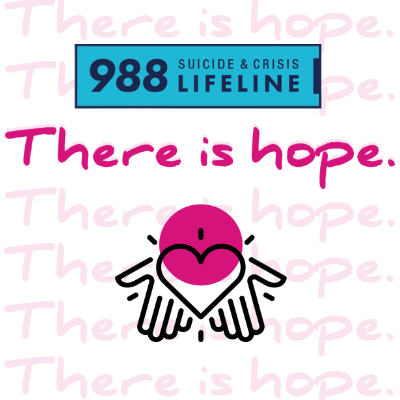Suicide Prevention Lifeline.
Call or text 988
For TTY Users: Use your preferred relay service or dial 711 then 988.
Suicide in theElderly
- While older adults comprise just 12% of the population, they make up approximately 18% of suicides.
- In 2017, among the more than 47,000 suicides that took place in the U.S., 8,500 were attributed to people age 65 and up.
- Older adults tend to plan suicide more carefully. They are also more likely to use more lethal methods.
- Among people who attempt suicide, one in four seniors will succeed, compared to 1 in 200 youths. Even if a senior fails a suicide attempt, they are less likely to recover from the effects.
- Men 65 and older face the highest overall rate of suicide.
Why is suicide higher in older adults?
Suicidal behavior is common in older adults for a number of reasons. Loneliness has been found to top the list. Many seniors are homebound and live on their own. If their spouse has recently passed on and there are no family members or friends nearby, they may lack the social connections they need to thrive.
Other reasons for suicidal intent in older adults include:
Grief over lost loved ones: Adults who live long enough may begin to lose cherished family members and friends to old age and illness. They may wrestle with their own mortality and experience anxiety about dying. For some, this “age of loss” is overwhelming and can intensify feelings of loneliness and hopelessness.
Loss of self-sufficiency: Seniors who were once able to dress themselves, drive, read, and lead an active life may grapple with a loss of identity. They may mourn the independent, vibrant person they once were.
Chronic illness and pain: Older adults are more likely to face illnesses and chronic disease such as arthritis, heart problems, high blood pressure, and diabetes. These conditions can bring on pain and mobility issues that compromise quality of life. Seniors may also experience loss of vision and other senses, such as hearing, making it harder to do the things they love.
Cognitive impairment: In a recent study, researchers found that older adults with mild cognitive impairment and dementia had a higher risk for suicide. Declines in cognitive function can affect a person's decision-making abilities and increase impulsivity.
Financial troubles: Older adults living on a fixed income may struggle to pay their bills or keep food on the table. For someone who is already struggling with health issues or grief, financial stress can be a trigger for suicidal thoughts. Learn More


